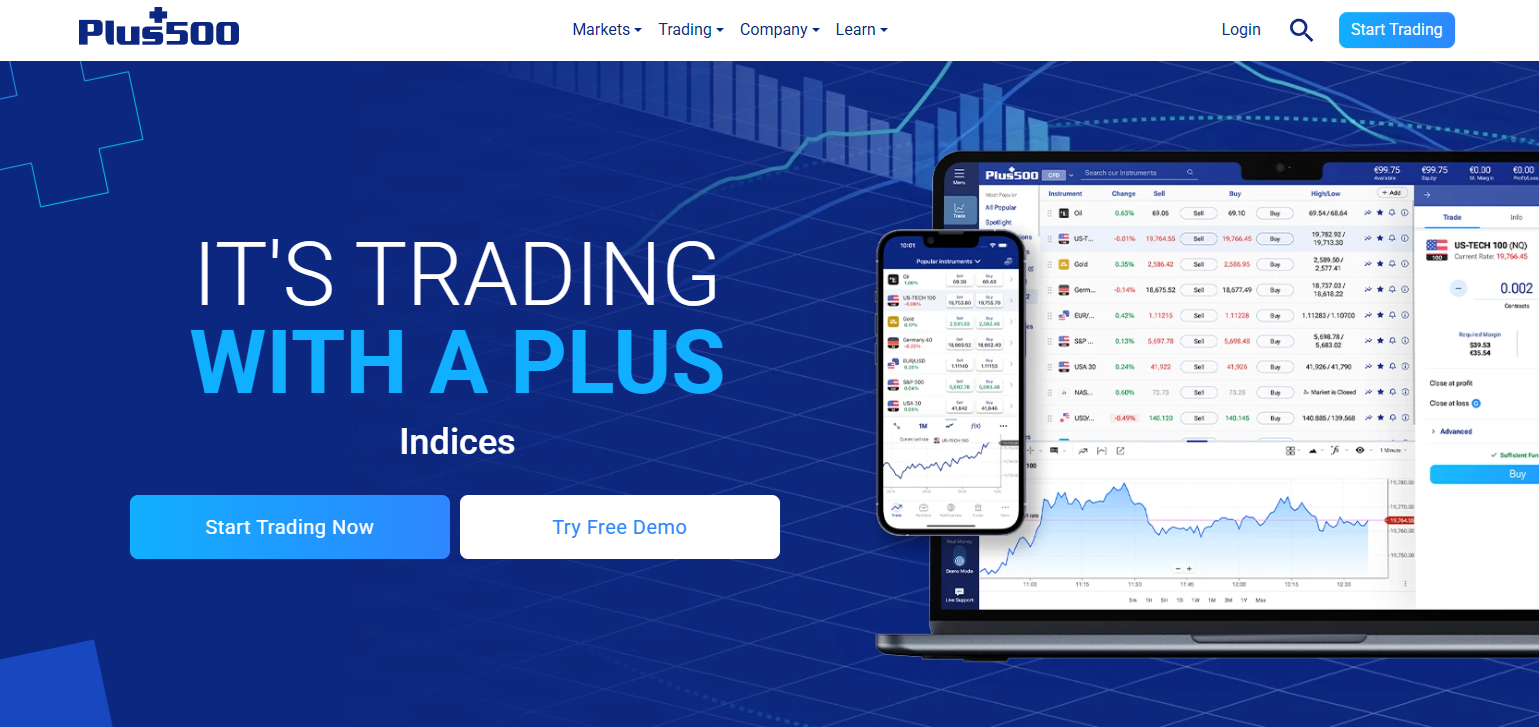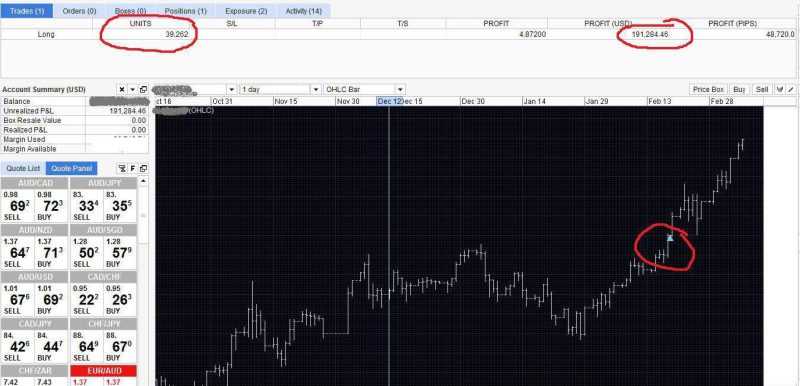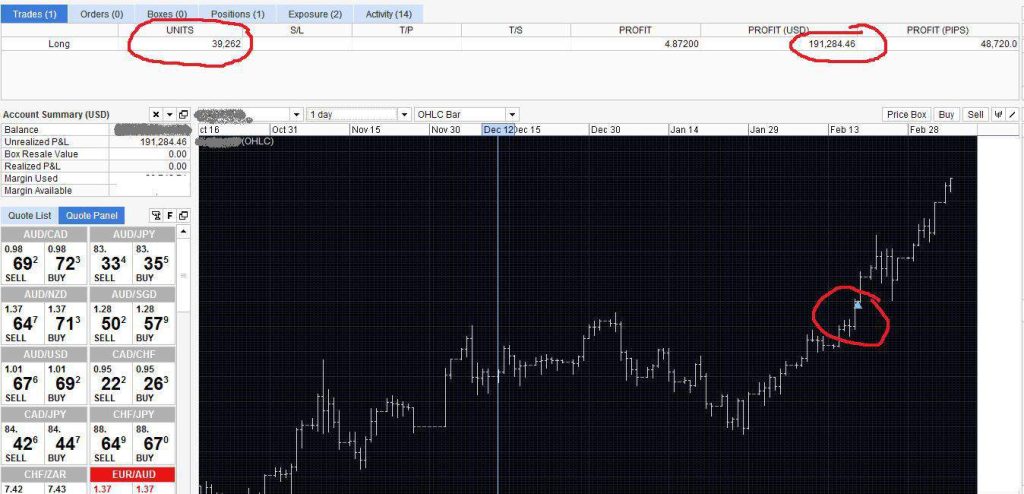
As the world progresses, the demand for oil continues to rise, bringing with it immense opportunities for traders. The global Forex market has become a hotspot for those keen to invest in the fluctuating prices of oil, presenting prospects for significant profits. At the heart of this, Forex oil trading brokers serve as the indispensable guide for traders. In this detailed examination, we will dive deeper into Forex oil trading, the role of brokers, their benefits, drawbacks, and the commissions and fees they impose.
How to Trade Oil on Forex?

Oil trading on Forex isn't simply a matter of buying and selling; it's an art that requires a deep understanding of the oil market. The dynamics of oil prices depend on a wide array of factors. They include geopolitical incidents, OPEC decisions, technological advancements, natural disasters, and changes in global economic health. The first step towards trading oil involves keeping a close eye on these factors and predicting how they will impact the price of oil.
Next, selecting the right Forex broker becomes essential. A reliable broker can provide you with the necessary trading tools, platforms, and market insights, contributing significantly to your trading performance. Choosing the right broker should be based on their regulations, fees, trading platforms, customer service, and the range of assets they offer.
Best Oil Trading Brokers
#1. AvaTrade
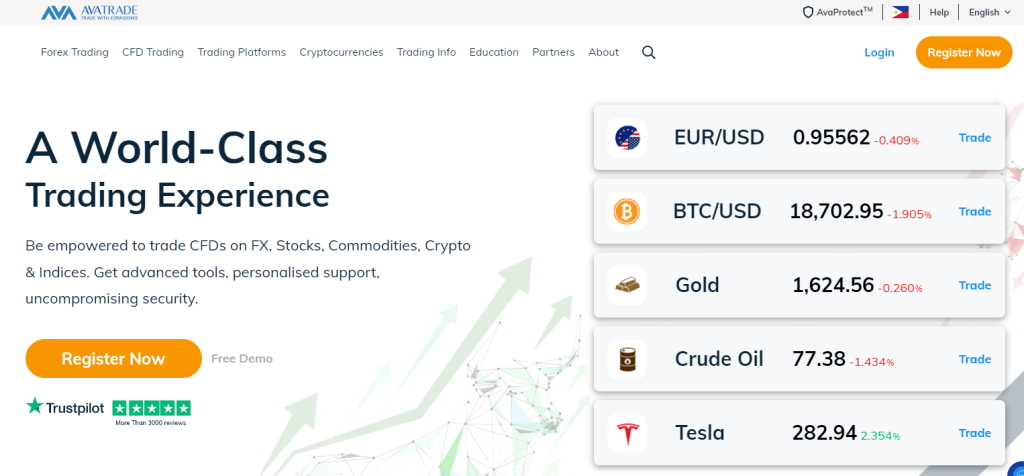
What is AvaTrade?
Founded in 2006, AvaTrade is an internationally recognized Forex and CFD broker. They have revolutionized the online trading industry by providing a user-friendly, innovative, and reliable trading environment tailored to the needs of both novice and experienced traders. The Ireland-based broker offers a wide range of financial instruments, including currency pairs, commodities, indices, stocks, cryptocurrencies, and, of course, oil.
Advantages and Disadvantages of Trading with AvaTrade
Commissions and Fees
At AvaTrade, one of the highlights is the cost-effective trading structure. They operate on a spread-only basis, meaning they don't charge any commissions on trades. The spread is essentially the difference between the bid (sell) price and the ask (buy) price of an asset. The cost of trading, therefore, depends on the market volatility and the specific asset being traded. For example, oil trades might have different spread costs compared to currency pairs. Traders must always be aware of the spread costs when calculating potential profits.
#2. Plus500
What is Plus500?
Plus500 is a leading online trading platform that offers Contracts for Difference (CFDs) on various financial instruments, including oil, commodities, forex, indices, and shares. The platform is renowned for its user-friendly interface, advanced charting tools, and real-time alerts, facilitating efficient and informed trading decisions. Operating under the stringent oversight of multiple regulatory authorities, such as the Financial Conduct Authority (FCA) in the UK, the Australian Securities & Investments Commission (ASIC) in Australia, and the Commodity Futures Trading Commission (CFTC) in the US, Plus500 ensures a secure and transparent trading environment. This extensive regulatory compliance, coupled with its comprehensive features, positions Plus500 as a preferred choice for traders seeking a reliable platform for oil trading.
Advantages and Disadvantages of Plus500
Plus500 Commissions and Fees
Plus500 primarily generates revenue through the market spread, which is the difference between the buy and sell prices of an instrument, and does not impose commissions on trades. However, traders should be mindful of additional fees, such as overnight funding, which applies when holding a position after a specified time, and a currency conversion fee of up to 0.7% for trades on instruments denominated in a currency different from the account's base currency. An inactivity fee of up to $10 per month may also be charged if there is no account activity for at least three months. Despite these fees, Plus500's transparent pricing structure and absence of commission charges make it a competitive option for oil traders.
OPEN AN ACCOUNT NOW WITH PLUS500 AND GET YOUR WELCOME BONUS
OPEN A DEMO ACCOUNT ON PLUS500
#3. Alpari

What is Alpari?
Alpari, founded in 1998, is one of the oldest online Forex brokers, boasting a significant global presence. It offers a wide array of trading instruments, including Forex, commodities like oil, and CFDs on indices and stocks. Alpari has built its reputation on transparency, reliability, and high-quality customer service.
Advantages and Disadvantages of Trading with Alpari
Commissions and Fees
When it comes to trading costs, Alpari adopts a mixed approach. For ECN and Pro accounts, a commission is charged, the rate of which depends on the trader's monthly trading volume. In terms of spreads, they offer competitive rates, with spreads starting from as low as 0.1 pips for major pairs. The exact cost can vary depending on the asset traded and the market conditions.
#4. InstaForex

What is InstaForex?
Established in 2007, InstaForex is an award-winning online broker that offers a range of trading services and tools for trading Forex and CFDs. InstaForex has created a platform that caters to the needs of different traders, providing them with various financial instruments, including oil.
Advantages and Disadvantages of Trading with InstaForex
Commissions and Fees
InstaForex operates a spread-only model for their standard accounts, which means they do not charge a commission on trades. Instead, they profit from spreads – the difference between the buying and selling prices. Spreads at InstaForex start from 3 pips and vary depending on market conditions and the specific asset being traded.
#5. FPMarkets
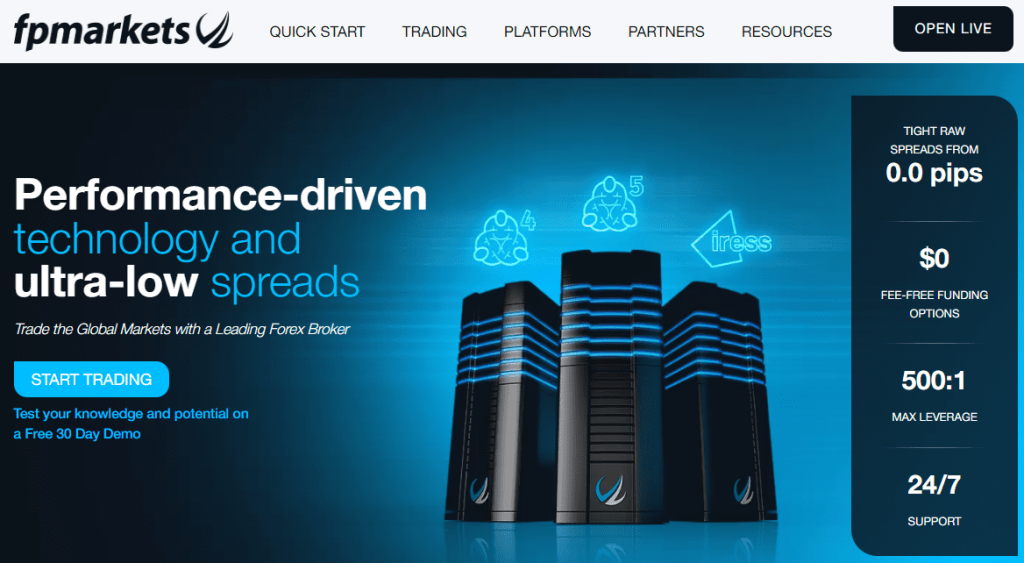
What is FPMarkets?
Founded in 2005, FPMarkets is an Australian-based broker offering Forex and CFD trading services to traders around the globe. They have positioned themselves as a reliable and transparent broker, offering a range of tradable assets, including oil CFDs.
Advantages and Disadvantages of Trading with FPMarkets
Commissions and Fees
FPMarkets utilizes a hybrid cost structure. For their Raw account, a commission is charged starting from $3.5 per lot, providing traders with tight spreads from 0.0 pips. However, the exact cost depends on the market conditions and the traded asset, which traders should consider when formulating their trading plans.
The Intricacies of Forex Oil Trading Brokers

Oil trading, especially through Forex brokers, has become a sought-after venture for both retail and advanced traders. The volatile nature of oil markets, coupled with the high volume trading environment, makes it an attractive proposition. Let's delve into the mechanics of this dynamic field.
Trading Platforms and Instruments
Forex brokers provide a variety of trading platforms and instruments. The most popular trading platforms include MetaTrader 4 and 5, and cTrader. These platforms offer a range of trading instruments, from currency pairs and commodities to indices and stocks, with oil being one of the key assets.
Trading oil primarily occurs through two instruments: Contract for Differences (CFDs) and futures contracts. Both offer exposure to the oil market without requiring the physical delivery of the asset.
Trading CFDs
CFDs allow traders to speculate on the price movements of oil without owning the underlying asset. Traders can take advantage of price movements in both directions – gaining from increases by going long, and profiting from decreases by going short. This flexibility makes CFDs popular among retail trader accounts.
However, it's important to note that CFDs come with high risk. As a leveraged product, losses can exceed the initial investment, making it less suitable for inexperienced traders. The majority of retail CFD accounts lose money, highlighting the need for proper risk management and trading education.
Trading Oil Futures
Futures contracts, on the other hand, are agreements to buy or sell a certain amount of oil at a specific price on a future date. This instrument is more commonly used by advanced traders or high-volume traders due to the larger contract sizes and higher initial investment required. Trading oil futures offers traders a way to hedge against price volatility and gain exposure to oil without the need to store or handle the physical commodity.
Crude Oil Trading Brokers
Choosing the right crude oil trading broker is crucial in ensuring a smooth trading experience. These brokers should offer competitive spreads, a range of trading platforms, quality customer support, and above all, a transparent and fair trading environment. As mentioned earlier, AvaTrade, RoboForex, Alpari, InstaForex, and FPMarkets are some of the reputable oil trading brokers in the market today.
Each broker offers a unique blend of trading conditions and features that cater to different types of traders. Whether you're a retail trader looking to speculate on short-term oil price movements via CFDs or an advanced trader interested in hedging strategies with oil futures, there is a broker out there to fit your trading needs.
In conclusion, oil trading through Forex brokers offers lucrative opportunities. However, traders should be mindful of the risks involved. A sound understanding of the oil market, along with a reliable broker and a robust trading strategy, are key ingredients for success in this field.
Conclusion
Forex oil trading is a promising venture that can yield substantial profits if navigated correctly. Selecting the right Forex broker is a crucial part of the journey. Each broker discussed, from AvaTrade to FPMarkets, presents a unique set of advantages, disadvantages, and trading costs. It's essential for traders to consider all these factors and choose a broker that aligns best with their trading goals and strategies. Forex oil trading is not without risks, but with the right broker and trading strategy, it can prove to be a lucrative endeavor.
FAQs
What is Forex oil trading?
Forex oil trading involves speculating on the price of oil and profiting from its fluctuations in the Forex market.
How can I start trading oil on Forex?
To start trading oil on Forex, you need to open a trading account with a reputable broker, deposit funds, and then start trading based on your analysis and strategy.
Which is the best Forex broker for oil trading?
There's no one-size-fits-all answer as the best broker depends on individual needs and preferences. AvaTrade, RoboForex, Alpari, InstaForex, and FPMarkets are some highly-rated brokers.
Do Forex brokers charge a fee for oil trading?
Yes, most Forex brokers earn from spreads, which are the difference between the buying and selling price of oil. Some also charge a commission on trades.
Can I practice Forex oil trading without risking real money?
Yes, most Forex brokers offer demo accounts where you can practice trading with virtual money, giving you a risk-free environment to hone your strategies.

